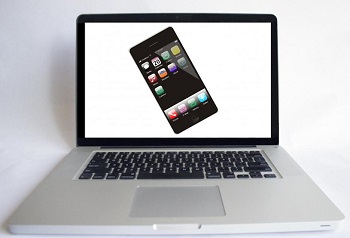Lack of Apple Pay leads to new opportunities in Canada’s mobile payments space
Apple Pay has generated a great deal of interest in mobile payments, but it is not yet available outside of the United States. In Canada, the demand for mobile payment service is on the rise, and nTrust is willing to accommodate this demand and capitalize on the absence of Apple Pay in the country. The company intends to provide consumers with more than a mobile wallet platform, however, as its service will be considered an “all inclusive shop” where funds are transferred through a closed loop ecosystem.
Mobile wallets are becoming more important to consumers
Mobile wallets are quite useful to consumers, as they can store a wide range of information, such as financial details and information from retailers. These platforms can also facilitate mobile payments, which have become more popular with consumers that are relying more heavily on their smartphones. The service that nTrust aims to provide will allow users to create virtual representations of t heir payment cards in a process that is similar to tokenization, allowing them to make secure transactions.
20 new merchants sign up with ntrust
 The company recently added 20 new merchants to its service, which will accept mobile transactions from those using the platform. These organizations have shown more interest in mobile payments as it represents a way to engage consumers in a more dynamic fashion. It is also seen as more convenient than conventional payment solutions, as consumers only need to use their smartphones to make a purchase rather than swiping a payment card or handling cash.
The company recently added 20 new merchants to its service, which will accept mobile transactions from those using the platform. These organizations have shown more interest in mobile payments as it represents a way to engage consumers in a more dynamic fashion. It is also seen as more convenient than conventional payment solutions, as consumers only need to use their smartphones to make a purchase rather than swiping a payment card or handling cash.
Secure mobile payment platform could be a success among Canadian consumers
The mobile payments market is quite crowded, with plenty of competition to go around. If nTrust wants to compete in this sector, it will have to find ways to convince consumers that it offers a secure and highly efficient experience. This experience must also be enjoyable for consumers, as lack of enjoyment with mobile payments platforms has lead to many services being abandoned by those that had used them in the past.
A recent study has shown that despite the popularity of smartphones, they are still not the top internet access devices.
The results of a new Pew study have now been released and they looked into the mobile technology usage of 2,188 smartphone users, asking them about the way they depend on those devices for their internet access.
What they found was that the home broadband experience is still preferred to smartphone based internet.
The research indicated that the mobile technology device owners who are relying on those gadgets are more likely to be those who use them for vital services and job hunting. Moreover, those who use the devices as their primary internet connection are also those who have experienced financial hardship and who are more likely to have their smartphone service cut off.
This reveals quite a bit about the way that mobile technology is being used as a source of internet connection.
 According to a co-author of the study, Aaron Smith, explained that “That momentary inconvenience could be the difference between hearing back from a job and being able to apply for a job.” He went on to add that “This could affect their financial situation in a meaningful way.”
According to a co-author of the study, Aaron Smith, explained that “That momentary inconvenience could be the difference between hearing back from a job and being able to apply for a job.” He went on to add that “This could affect their financial situation in a meaningful way.”
This data shows that approximately 64 percent of adult Americans own smartphones, and among them, about 7 percent don’t have any other type of high speed internet access at home. The study referred to those users as “smartphone dependent”. They face limitations with regards to their internet usage options, aside from their smartphones, when it comes to going online. Some of their only alternative choices would be local community centers and libraries.
The report also indicated that among all owners of smartphones have an annual household income that is lower than $30,000, just about half of them had said that they had been forced to pause or even cancel their smartphone service as a result of money struggles. Moreover, 51 percent of them also said that they occasionally or even frequently max out their data plans.
The cessation of internet service over mobile technology could have been potentially devastating for households within the annual income level that was lower than $30,000 per year, as they were also those that were four times more likely to submit a job application over their smartphones than people who were doing better financially.
 The company recently added 20 new merchants to its service, which will accept mobile transactions from those using the platform. These organizations have shown more interest in mobile payments as it represents a way to engage consumers in a more dynamic fashion. It is also seen as more convenient than conventional payment solutions, as consumers only need to use their smartphones to make a purchase rather than swiping a payment card or handling cash.
The company recently added 20 new merchants to its service, which will accept mobile transactions from those using the platform. These organizations have shown more interest in mobile payments as it represents a way to engage consumers in a more dynamic fashion. It is also seen as more convenient than conventional payment solutions, as consumers only need to use their smartphones to make a purchase rather than swiping a payment card or handling cash.
 According to a co-author of the study, Aaron Smith, explained that “That momentary inconvenience could be the difference between hearing back from a job and being able to apply for a job.” He went on to add that “This could affect their financial situation in a meaningful way.”
According to a co-author of the study, Aaron Smith, explained that “That momentary inconvenience could be the difference between hearing back from a job and being able to apply for a job.” He went on to add that “This could affect their financial situation in a meaningful way.”